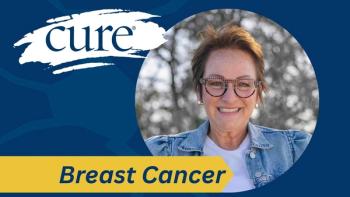
Breast Cancer Survivors at Higher Risk for Weight Gain
Within five years after a breast cancer diagnosis, women face an increased risk of weight gain compared with their cancer-free peers, a study has found.
Within five years after a breast cancer diagnosis, women face an increased risk of weight gain compared with their cancer-free peers, a study has found.
Published in Cancer Epidemiology, Biomarkers & Prevention, the study looked at 303 breast cancer survivors and 307 age- and menopausal status-matched, cancer-free women from the
Researchers found that survivors who were diagnosed with breast cancer within five years before the baseline questionnaire was completed gained an average of 3.81 pounds more than cancer-free women. No significant weight gain was seen among those diagnosed with breast cancer more than five years before baseline.
Weight gain risk was particularly significant amongst survivors diagnosed with estrogen receptor (ER)-negative tumors within five years before baseline, with the average survivor in this population gaining 7.26 pounds more than cancer-free women.
Survivors who had received chemotherapy (with or without hormonal therapy) within five years before baseline were also at higher risk, and were found to be more than twice as likely to have gained at least 11 pounds compared with cancer-free women. Weight gain was even more common amongst survivors who took statins while undergoing chemotherapy treatment.
These findings are concerning, says Amy Gross, the first author on the study and a doctoral candidate in the Department of Epidemiology at the
“Weight gain of this magnitude in adults has been associated with increased future risk for chronic diseases like coronary heart disease, hypertension and type 2 diabetes,” says Gross. “We are continuing to follow our study participants to track weight-gain patterns over a longer period of time.”
Health care professionals need to be aware of the increased risk of weight gain amongst survivors, and pay closer attention to fluctuations in weight during and after cancer treatment.
“Longer follow-up is needed to confirm the persistence of weight gain in breast cancer survivors and understand the metabolic changes that may be occurring,” says study author Kala Visvanathan, associate professor of epidemiology at the
The Breast and Ovarian Surveillance Service Cohort Study is ongoing, consisting of women and men with a familial risk for breast and/or ovarian cancer, recruited
from 2005 to 2013 from the cancer genetics clinic at the Johns Hopkins Sidney Kimmel Comprehensive Cancer Center. At enrollment, after informed consent was obtained, participants were asked to complete an extensive baseline questionnaire on demographic characteristics; weight; height; lifestyle factors including physical activity and breast cancer risk factors; cancer history and treatments, and medication use.
Of the 303 breast cancer survivors included in the study, 179 had received treatment within five years before baseline and 123 had received treatment more than five years before baseline. About 50 percent reported receiving chemotherapy, and about two-thirds reported receiving hormonal therapy. Sixty-eight percent of the breast cancer survivors and 72 percent of the cancer-free women had reported baseline physical activity that met the American Heart Association recommendations.




